I want to create class that is intended to serve as configuration management and serving helper. It would store some basic connection settings in XML file, read it to it's own properties and serve to any other module, form, object etc. I've created a class like following:
Option Compare Database
Option Explicit
Private mstrSqlServerName As String
'...
Public Property Get SqlServerName() As String
SqlServerName = mstrSqlServerName
End Property
'...
Private Sub Class_Initialize()
readConfigFile
End Sub
Private Function loadConfigFile() As MSXML2.DOMDocument60
On Error GoTo FunctionError
Dim XMLFileName As String
Dim objRoot As IXMLDOMElement
Dim strMsg As String
Dim oXMLFile As MSXML2.DOMDocument60
'Open the xml file
Set oXMLFile = New MSXML2.DOMDocument60
XMLFileName = (Application.CurrentProject.Path & "\config.xml")
With oXMLFile
.validateOnParse = True
.SetProperty "SelectionLanguage", "XPath"
.async = False
.Load (XMLFileName)
End With
Set loadConfigFile = oXMLFile
End Function
Public Sub readConfigFile()
Dim oXMLFile As MSXML2.DOMDocument60
Set oXMLFile = loadConfigFile
mstrSqlServerName = oXMLFile.selectSingleNode("//config/database/SqlServerName").Text
End Sub
I've tested my class in intermediate window and everything works flawlessly. Then I've created hidden form to instantiate the class like follows:
'frmYouShouldNotSeeMe
Option Compare Database
Option Explicit
Public configuration As clsConfiguration
Private Sub Form_Load()
Set configuration = New clsConfiguration
MsgBox Prompt:=configuration.SqlServerName
End Sub
Now, from other module/form/report etc. i wanted to call configuration item with:
MsgBox configuration.SqlServerName
But when I'm trying to compile my project it says "compile error, variable not defined". In short: I cannot find a way to use instantiated (named) object properties from other objects of database. They just don't know anything about it's existence. In the intermediate window everything works, I can instantiate object and call GET functions. What did I do wrong? Probably it's just what OOP design brings and I just don't understand that. What is the best way to achieve this goal?
